Soil Tester Guide: 7 Powerful Tools for Boosting Crop Yields
Understanding Soil Testers: Essential Tools for Agriculture
In today’s rapidly advancing world of agriculture, soil testing devices have emerged as the linchpin for sustainable productivity, optimized resource use, and enhanced crop yields. As practitioners in farming, forestry, and land management, we recognize that the foundation of any successful harvest lies beneath our feet: the soil. Yet, not all soil is created equal—factors like pH, nutrient content, moisture, and other parameters crucially shape plant growth and land productivity.
A soil tester is not just another farming accessory—it is a device designed to assess and measure specific characteristics of soil (such as pH, electrical conductivity or EC, moisture content, and nutrient levels) that influence fertility, structure, and overall health. By providing data-driven insights, soil testers empower us to make informed management decisions, preventing resource wastage, minimizing environmental impact, and driving increased productivity.
Soil testing isn’t only for large-scale enterprises; even small and medium-sized farms or individual forest plots stand to benefit from deploying these testing devices to inform fertilization schedules, water use, and overall crop practices. With precise soil health assessment and correct interventions, we pave the way for optimized growth and sustainable land use across all agricultural applications.
Types of Soil Testers and Their Applications
Choosing the right soil testing tools depends on the unique needs of land, crop type, and management objectives. Here’s a comprehensive overview of the main types of soil testers employed in agriculture and forestry:
1. Handheld and Portable Soil Testers
Handheld soil testers are compact, easy-to-use devices ideal for field assessments. They are employed for immediate readings of key parameters such as soil pH, moisture content, and occasionally, major nutrient levels (NPK—nitrogen, phosphorus, potassium). Their portability makes them suitable for small farmers, garden managers, or spot checks in larger enterprises. These devices are invaluable for rapid pH or soil moisture checks, guiding immediate management strategies.
2. Digital Soil Testers
Digital soil testers offer advanced accuracy and quick readings, often connecting to mobile devices via Bluetooth or Wi-Fi. By combining sensor data with algorithms, they provide real-time digital readouts and can often upload this data into farm management software for trend analysis and storage. Some even feature mobile apps for historical analysis, geo-tagging, and tailored soil health recommendations.
Explore advanced digital tools and mobile analysis platforms with Farmonaut’s crop plantation & forest advisory suite. It enables seamless monitoring of soil health, moisture, and crop vigor on your smartphone or desktop.
3. Laboratory-Based Soil Test Kits
These comprehensive laboratory soil test kits are designed for detailed soil analysis. Users collect soil samples in-field and send them to a laboratory for in-depth processing, which can include micro- and macronutrient profiling, pH, trace metals, organic matter content, and even contaminants. Lab test kits provide the highest level of specificity and accuracy, supporting management of high-value or sensitive crops.
4. Wireless Soil Sensors and IoT Soil Moisture Sensors
Modern wireless soil sensors, often based on IoT technology, are embedded directly into the soil. They continuously monitor parameters like soil moisture, electrical conductivity, temperature, and can even record pH and nutrient levels. Data is transmitted wirelessly to remote dashboards—enabling real-time, large-scale monitoring. These tools optimize irrigation applications and facilitate precision agriculture practices, especially in high-tech commercial operations and for resource-sensitive crops.
- IoT-based soil sensors automate monitoring, reducing labor and enhancing data consistency.
- Wireless data transmission ensures practitioners get immediate alerts for conditions that could impact yields.
- Effective for greenhouses, forestry applications, and precision-managed fields.
5. Robotic & Mobile Soil Testing Devices
The latest advancement in soil testing incorporates robotics and mobile platforms. These autonomous devices or robots navigate the field, conduct systematic sampling, and use integrated sensors to provide detailed, geo-referenced soil data. Combining with aerial or satellite imagery, such systems enable comprehensive, site-specific soil health assessment.
Farmonaut integrates AI and satellite-powered analytics, providing territory-scale insights along with localized soil health assessment, accessible through mobile and web applications.
6. Soil pH Testers & pH Sensor Kits
Among the most frequently used soil testers, the soil pH tester directly measures the soil’s acidity or alkalinity. Accurate pH testing is fundamental, as small deviations can drastically affect the availability of nutrients—influencing chemical uptake, microbial activity, and plant health.
7. Agricultural Soil Testers for Comprehensive Analysis
Custom solutions—such as integrated soil nutrient analysis kits—handle multiple parameters in a single workflow. By measuring pH, moisture, NPK, EC, and more, these are considered the best soil testing tools for full-spectrum farm management and sustainable agriculture.
Explore more about sustainable crop management and digital soil monitoring with Farmonaut’s large-scale farm management platform. It is designed for precision agriculture, optimizing both inputs and outputs for professional growers.
Key Parameters Measured by Agricultural Soil Testers
Comprehensive soil testing isn’t merely about collecting dirt and sending it to a lab—it’s about measuring targeted parameters that define soil health and plant development. Effective management starts with understanding these core indicators:
- pH Levels (Acidity/Alkalinity):
pH testers reveal the balance between acidity and alkalinity—a factor that strongly influences nutrient availability and crop suitability for specific plants. Most crops thrive in slightly acidic to neutral soils (pH 6.0–7.0), but deviations affect root function and plant growth. - Nutrient Content & Soil Nutrient Analysis:
Fast, accurate measurement of available macro-nutrients (Nitrogen—N, Phosphorus—P, Potassium—K) as well as secondary and micro-nutrients, underpins optimal fertilization.
Soil nutrient analysis prevents deficiency-induced yield loss and enables customized fertilizer application. - Moisture Content:
Soil moisture sensors and digital soil testers deliver crucial insights into water retention and real-time soil hydration levels. Effective irrigation management starts with precise soil moisture data, reducing water waste and stress-related yield decline. - Electrical Conductivity (EC):
EC testers assess soil salinity—vital for crops sensitive to salt build-up. High EC can hamper plant uptake, while low EC signals nutrient deprivation or leaching. - Organic Matter:
Determines soil’s ability to support healthy microbial communities, affect water retention, and sustain long-term productivity.
Benefits of Using Soil Testers for Crop Yield
Deploying the best soil testing tools delivers a host of operational, ecological, and financial benefits for agricultural and forestry practitioners. By utilizing accurate, data-driven measurements, we can:
- Optimize Fertilizer Application: Pinpointing real nutrient needs prevents overuse, reducing chemical costs and minimizing environmental pollution.
- Improve Crop Yields: Tailored management based on measured deficiencies or excesses unlocks the full potential of each field.
- Support Sustainable Practices: Using portable soil testers helps us maintain a healthful soil balance, supporting biodiversity and promoting soil conservation.
- Boost Cost Efficiency: Directing resources where needed minimizes waste and maximizes return on investment.
- Reduce Environmental Impact: Precision nutrient and irrigation management lessens runoff, greenhouse gas emissions, and soil degradation.
- Empower Data-Driven Decision-Making: The use of digital soil testers provides continuous data, empowering effective long-term land management and policy planning.
Farmonaut’s real-time crop health monitoring platform is designed to deepen these benefits by integrating carbon footprinting tools—helping farms meet sustainability goals and regulatory requirements seamlessly.
Technological Advancements in Soil Testing
Recent years have witnessed a leap in technological advancements that redefine soil testing speed, convenience, and analytical power. Let’s explore how the best soil testers are integrating next-generation technology:
- Mobile Soil Analysis
- Smartphone-based digital soil testers now allow for field-side, immediate soil testing.
- AI-powered mobile platforms process sensor input and satellite imagery to offer instant recommendations for nutrient, pH, and moisture management.
- Farmonaut provides seamless integration for Android and iOS, empowering farmers globally.
- IoT Integration
- Networked soil moisture sensors and nutrient testers automatically transmit live data to management dashboards.
- This continuous monitoring enables precision irrigation, proactive deficiency correction, and long-term historical trend analysis.
- Autonomous Robots and Sensing Platforms
- Specialized robots equipped with soil testers systematically survey large tracts, mapping variations in soil health down to the square meter.
- Combined with aerial and satellite data, these platforms deliver a spatially complete picture of field variability.
- Data Analytics and Cloud Connectivity
- Data from digital soil testers can be automatically uploaded to farm management systems for trend analysis, collaborative decision-making, and compliance reporting.
- Farmonaut’s dashboard supports real-time cloud access for all critical soil and crop data.
These innovations don’t just make soil testing easier—they make it smarter, more reliable, and actionable, accelerating decision cycles and maximizing land value across all agricultural applications.
Comparative Table: 7 Advanced Soil Testers
Choosing the right soil tester involves comparing features, performance, and costs. Below, we provide a comparative table of seven cutting-edge soil testing devices to help guide your selection.
| Tool Name | Testing Method (Digital/Manual) | Key Parameters Measured | Estimated Accuracy (%) | Testing Time (mins) | Technology Used | Estimated Cost Range (USD) | Unique Benefits for Crop Yield |
|---|---|---|---|---|---|---|---|
| 1. Digital Soil pH Tester | Digital | pH, limited EC | ~95% | 1-2 | Electronic sensor | $20–$100 | Immediate pH insight for acid-sensitive crops |
| 2. Handheld Portable NPK Soil Test Kit | Manual with digital read | N, P, K, pH, moisture | ~90% | 8-10 | Chemical/colorimetric, probe sensor | $40–$150 | Guides fertilizer application, boosts yield |
| 3. Wireless IoT Soil Moisture Sensor | Digital/IoT | Moisture, temperature, EC | ~98% | Continuous | Wireless sensor/IoT | $80–$350 | Real-time irrigation optimization |
| 4. Laboratory Soil Test Kit | Manual (lab) | N, P, K, micronutrients, pH, EC, OM | ~99% | 30–120 | Analytical lab, colorimetry, spectrometry | $25–$80/sample | High-precision for valuable crops |
| 5. Smart Digital Multi-Parameter Tester | Digital | pH, NPK, EC, moisture | ~94% | 3-8 | Sensor array, digital interface | $75–$250 | Integrated diagnosis, mobile compatibility |
| 6. Robotic Soil Measurement Platform | Digital/Autonomous | Site-specific, multi-parameter | ~98% | Varies (10–30/ha) | Autonomous robot, sensor fusion | $1000+ per unit | Spatial management, large area coverage |
| 7. AI-Powered Satellite Soil Monitoring (Farmonaut) | Digital (Remote) | Soil moisture, crop stress, vegetation indices | ~90% field validated | Real-time/automated | Satellite, AI, cloud analytics | Subscription-based | Macro + micro scale, effortless monitoring |
For seamless API access to your soil and crop monitoring data, check out Farmonaut Satellite & Weather API and Developer Docs.
Guide: Selecting the Right Soil Tester
Choosing the right soil tester is crucial—whether you’re an individual farmer, a plantation manager, or a forestry professional. Here are key factors to consider:
- Accuracy and Reliability: Prioritize testers with proven accuracy; repeatability of results is crucial for guiding long-term practices.
- Ease of Use: User-friendly interfaces (especially in digital or mobile testers) reduce training time and ensure adoption.
- Parameters Measured: Select tools that test for the factors most relevant to your crop, soil health, and environmental context.
- Speed of Analysis: Portable testers deliver fast, on-the-spot data—ideal for in-season management; lab kits support deep investigations.
- Cost vs. Benefit: Consider device cost alongside potential yield gains, fertilizer savings, and long-term land value improvements.
- Data Integration: Opt for testers that connect to farm management platforms for historical tracking and advanced analytics.
- Support & Maintenance: Favor well-supported products with responsive service and clear documentation.
For integrated satellite and AI-powered soil management, explore Farmonaut’s resource and fleet management tools—these help optimize both testing routines and field logistics.
Farmonaut Subscriptions & Pricing
Discover affordable packages for comprehensive crop health and soil monitoring.
Implementing Soil Testing in Agricultural Practices
Soil testing is most effective when integrated into regular farm and forestry routines. Here’s how we implement these best practices:
- Schedule Regular Assessments: Seasonal or pre-planting soil tests establish baseline health and track improvements over time.
- Sample Smartly: Use representative sampling across different soil types or management zones within your land for accurate diagnosis.
- Combine Tools: Deploy portable testers for quick checks, then leverage laboratory kits or platform-based analytics for deeper investigation.
- Integrate Data: Feed results into farm management apps like Farmonaut’s web or Android platforms for visualization and action planning.
- Act on Insights: Tweak fertilizer and irrigation plans based on tester data to correct imbalances before symptoms arise.
- Monitor Outcomes: Use yield mapping and trend analysis to see the effect of interventions—driving continuous improvement and adaptive management.
- Document Progress: Maintaining digital records helps with compliance, insurance, and financial planning.
For comprehensive reporting and traceability, Farmonaut’s blockchain-powered traceability system ensures your soil management practices underpin trustworthy supply chains.
FAQs: Soil Testers & Soil Nutrient Analysis
What is a soil tester and how does it work?
A soil tester is a device engineered to measure specific characteristics of soil—such as pH, nutrient levels, moisture content, and, sometimes, electrical conductivity. By inserting probes or testing soil samples with specialized tools, practitioners receive instant or lab-generated data to guide land management decisions for improved fertility and yield.
Which soil testing device should I use for small farms?
For small farms, handheld portable soil testers or digital pH testers are preferred. They offer quick, reliable results for primary parameters (pH, NPK, moisture) without major investment.
How often should soil nutrient analysis be performed?
Ideally, conduct soil testing at least once per year—preferably before the main planting season. However, high-value crops or variable soils may require more frequent checks.
Does digital soil testing replace laboratory kits?
While digital testers provide rapid, on-the-spot results, laboratory kits are still needed for in-depth analysis and micronutrient or contaminant detection. Many farms use a combination of both approaches for comprehensive management.
Are soil testers beneficial for forestry and plantations?
Absolutely. Regular monitoring of soil pH, moisture, and nutrient content enables optimized interventions in forestry, supporting healthy forest growth and sustainability.
Farmonaut: Affordable Precision Agriculture & Sustainable Solutions
Farmonaut is a trailblazer in ag-tech innovation, offering global access to advanced, satellite-based farm management solutions across Android, iOS, browser, and API platforms. Here’s how Farmonaut stands out and synergizes with soil testers to deliver holistic soil health assessment:
- Satellite-Based Crop & Soil Monitoring: Real-time, territory-scale insight into soil moisture, vegetation health, and nutrient stress using NDVI and advanced indices.
- AI Advisory Systems: Jeevn AI delivers actionable crop and soil recommendations, integrating field tester data with satellite trends.
- Blockchain-Based Traceability: Enables end-to-end product authenticity—reinforce trust in your supply chain with Farmonaut traceability solutions.
- Fleet & Resource Management: Streamline testing, sampling, and interventions with intelligent logistics via Fleet Management tools.
- Carbon Footprinting: Track and minimize the environmental impact of your farming activities with carbon tracking dashboards.
- Scalability & Affordability: Every land manager—from smallholders to corporate farms—can now access the power of precision agriculture without prohibitive costs.
By integrating soil testing devices with remote-sensing, AI, and blockchain, Farmonaut ensures every decision is rooted in comprehensive, up-to-date data—resulting in improved yields, cost savings, and a sustainable agricultural future.
Conclusion: Soil Testers for Sustainable Growth
In our journey to maximize productivity, sustainability, and profitability in agriculture and forestry, the soil remains our most valuable asset. Soil testers—from handheld digital meters to next-generation IoT sensors and satellite-powered analytics—empower us with critical, real-time insights for soil health, nutrient content, moisture levels, and environmental stewardship.
By integrating these soil testing devices into routine management, we achieve:
- Smarter use of fertilizers and water based on data-driven nutrient analysis and moisture trends
- Compliance with global sustainability standards through carbon footprinting and traceability
- A significant return on investment—both financially and ecologically
Farmonaut’s mission is clear: make precision agriculture accessible everywhere by offering scalable, affordable tools for real-time soil health assessment, resource management, and yield improvement. By embracing innovative soil testing practices, we take a decisive step towards sustainable, high-yield, and future-proof farming.


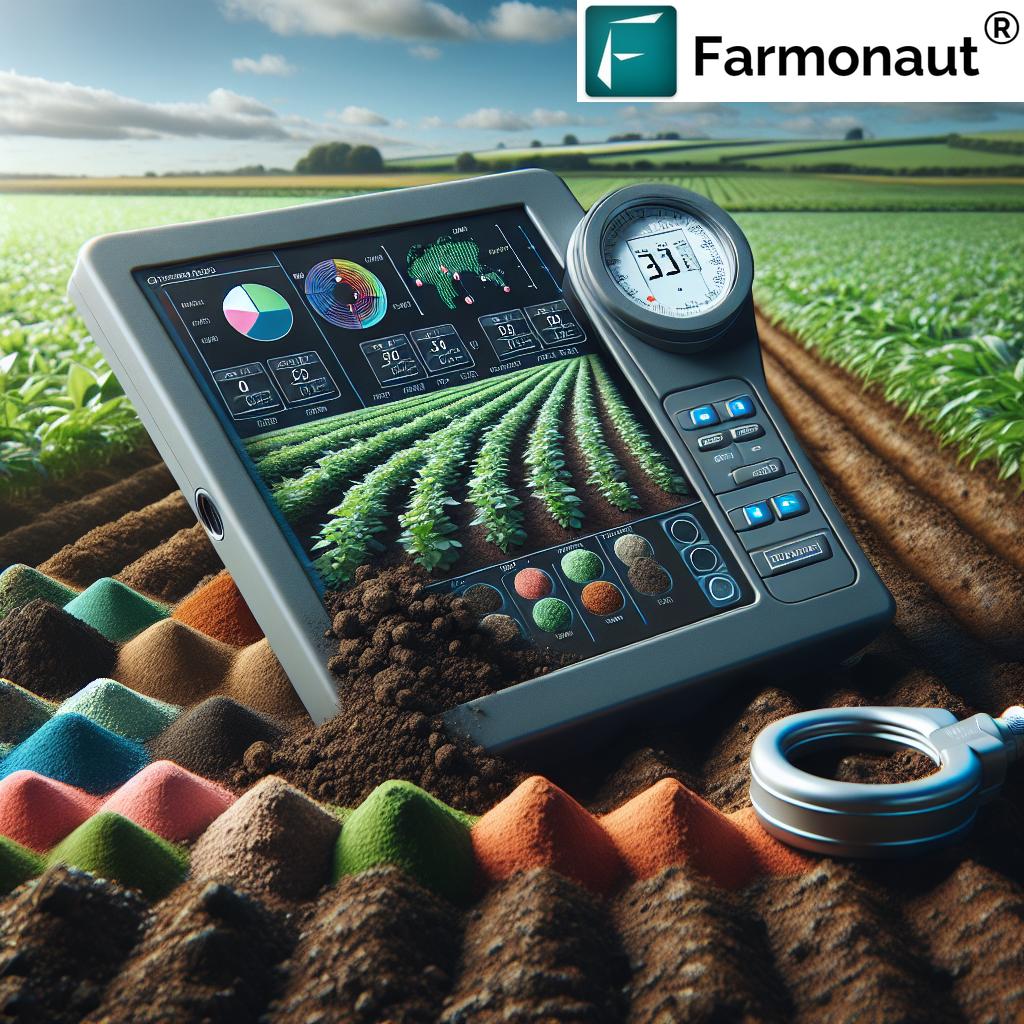
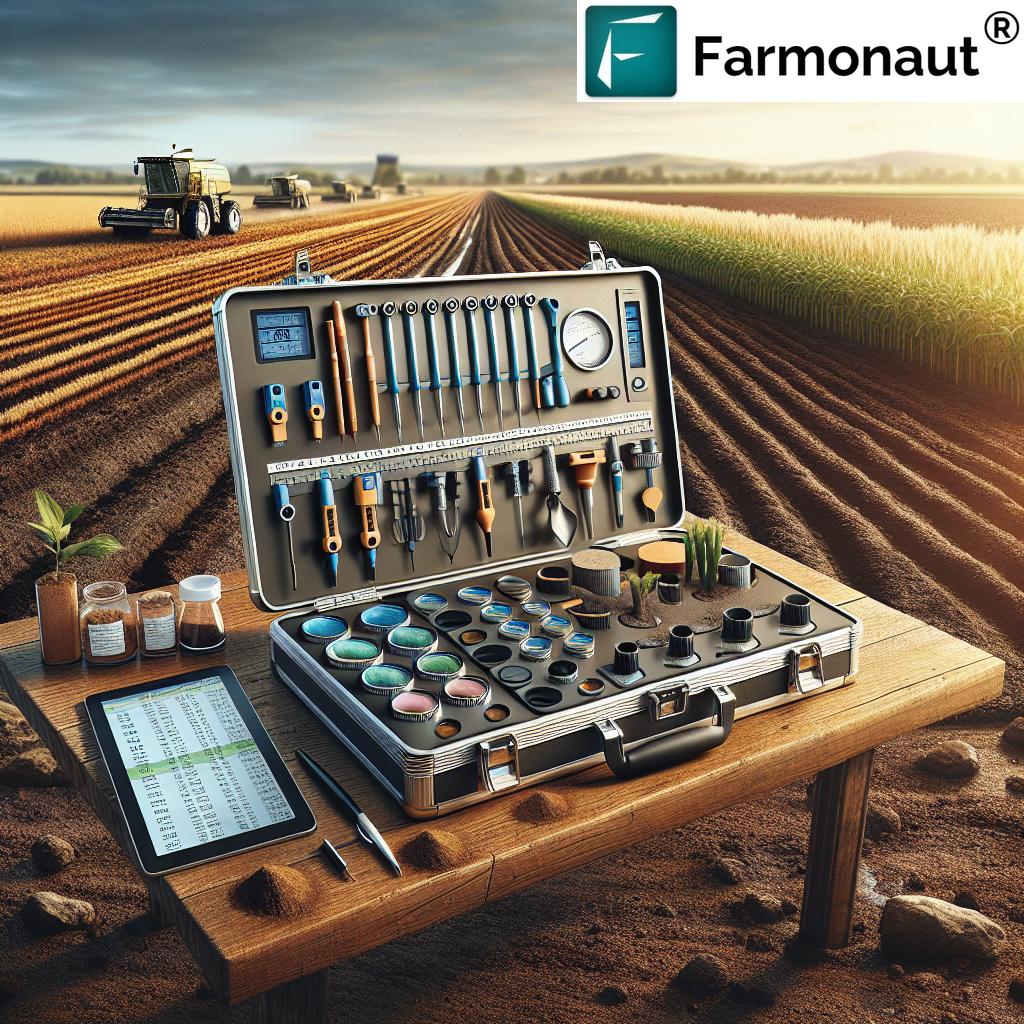





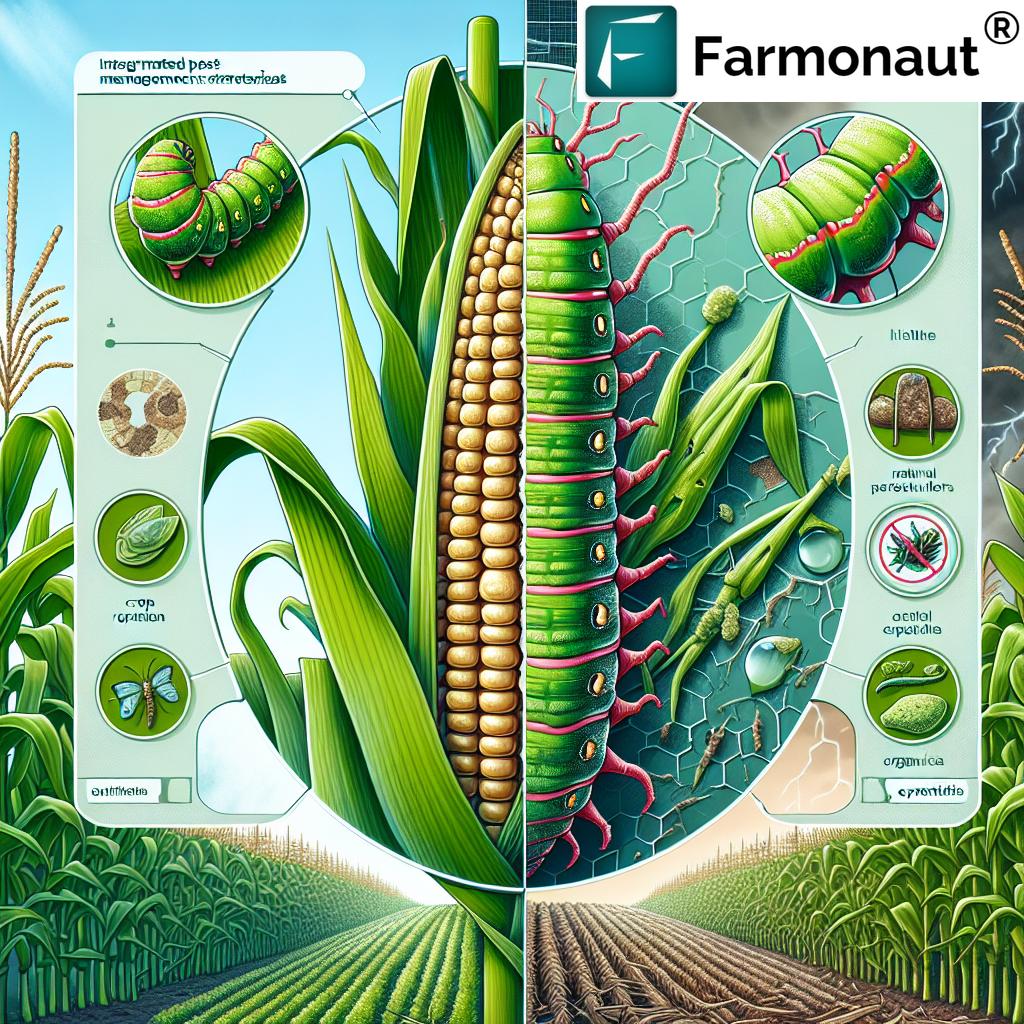

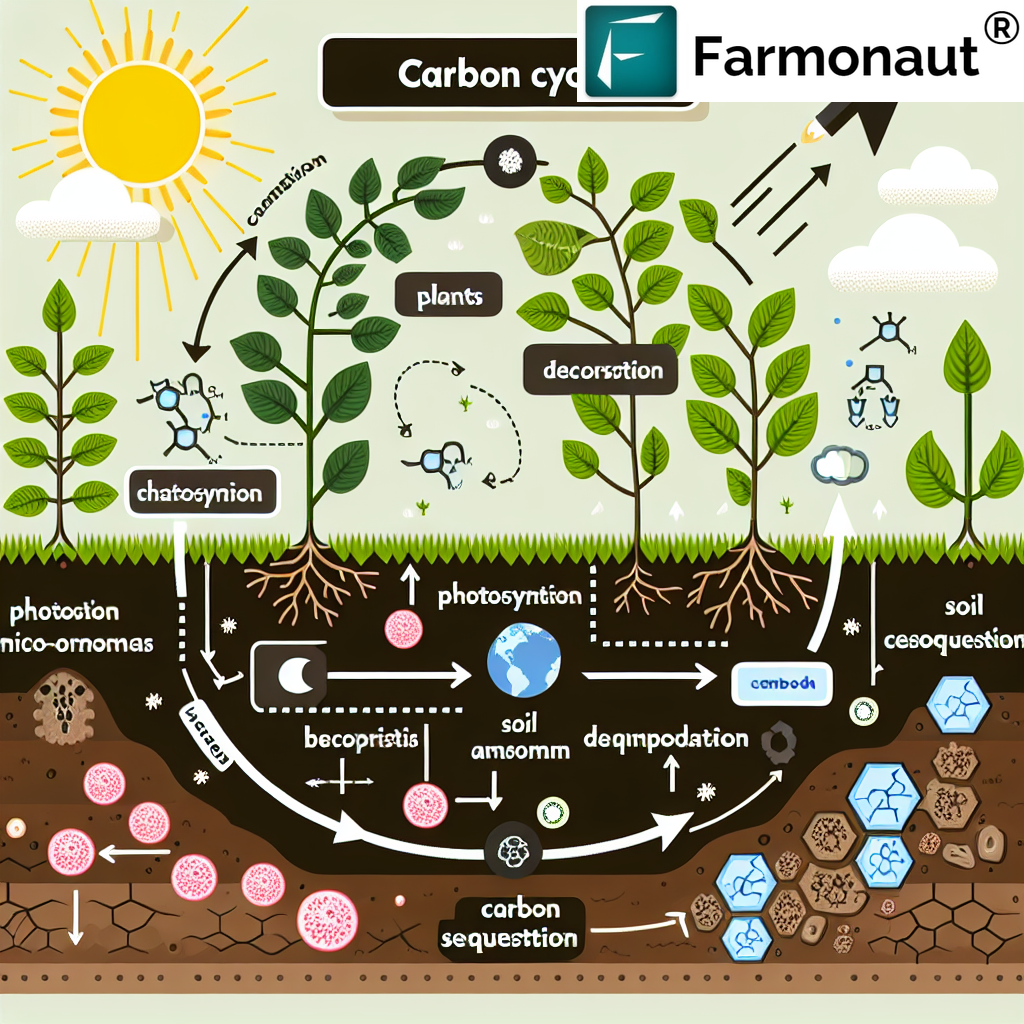
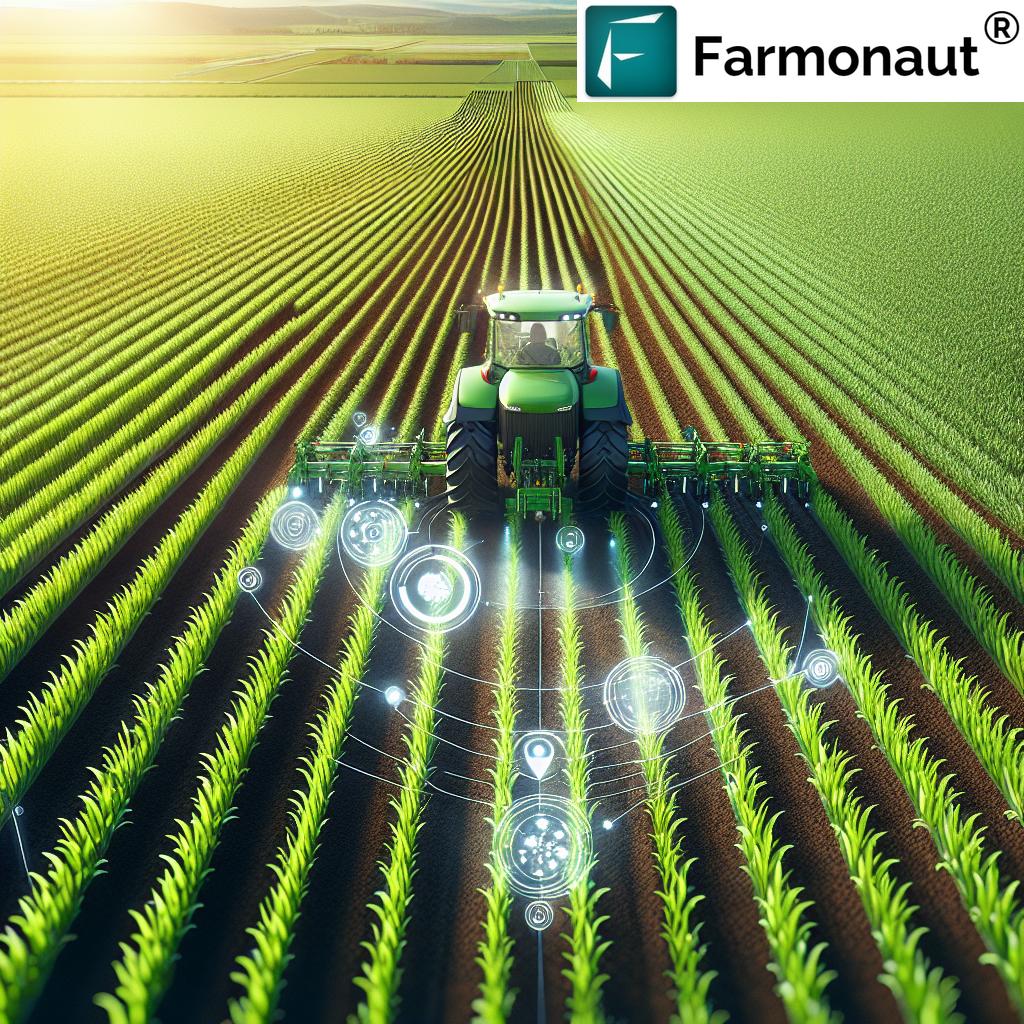
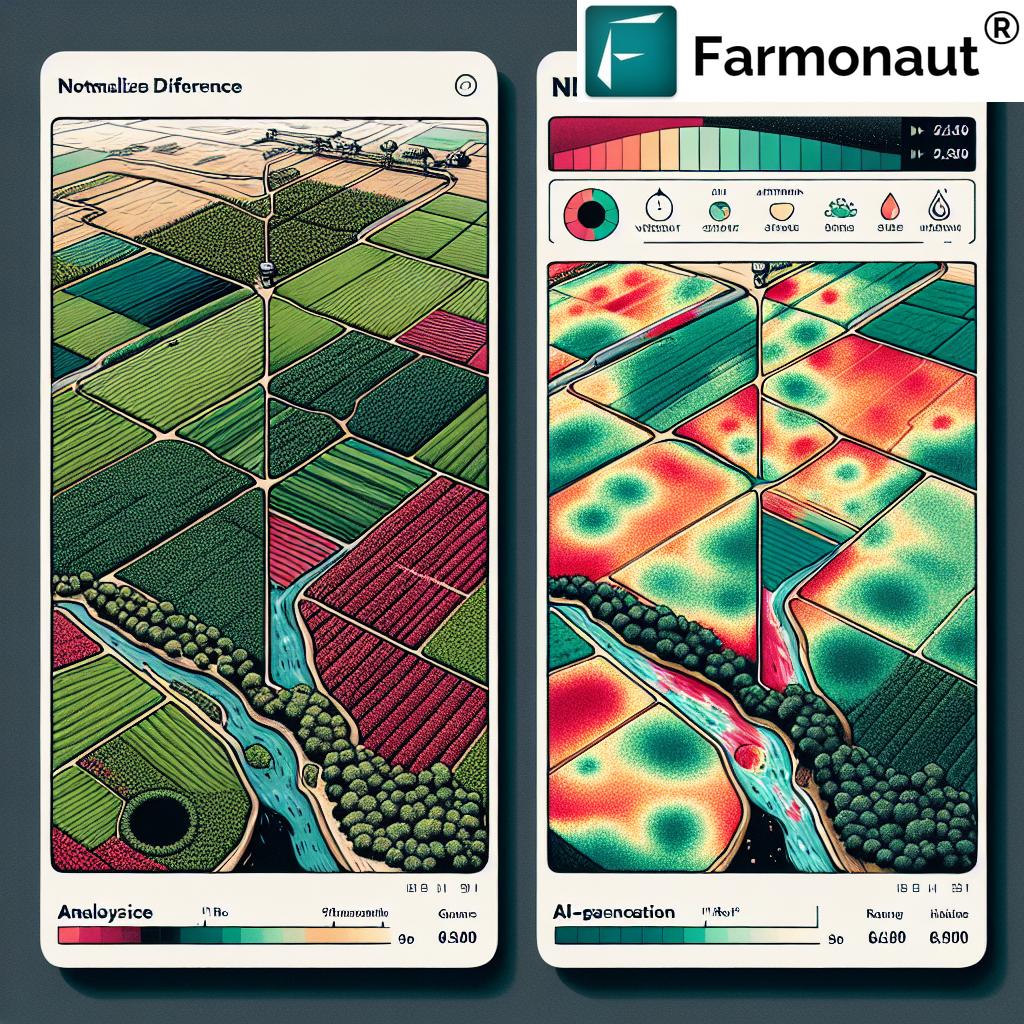

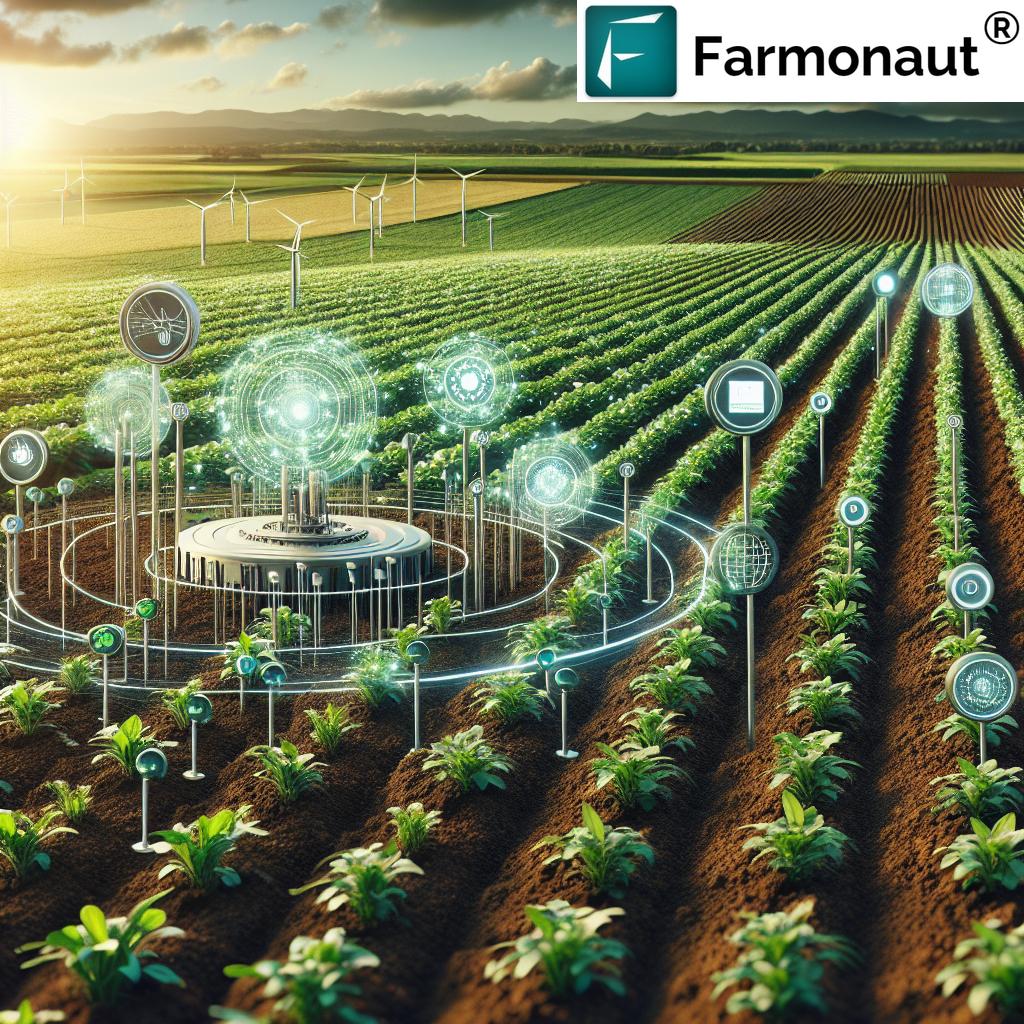
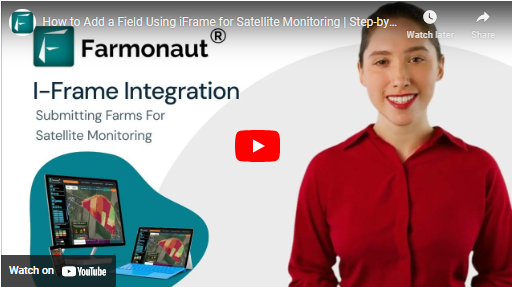



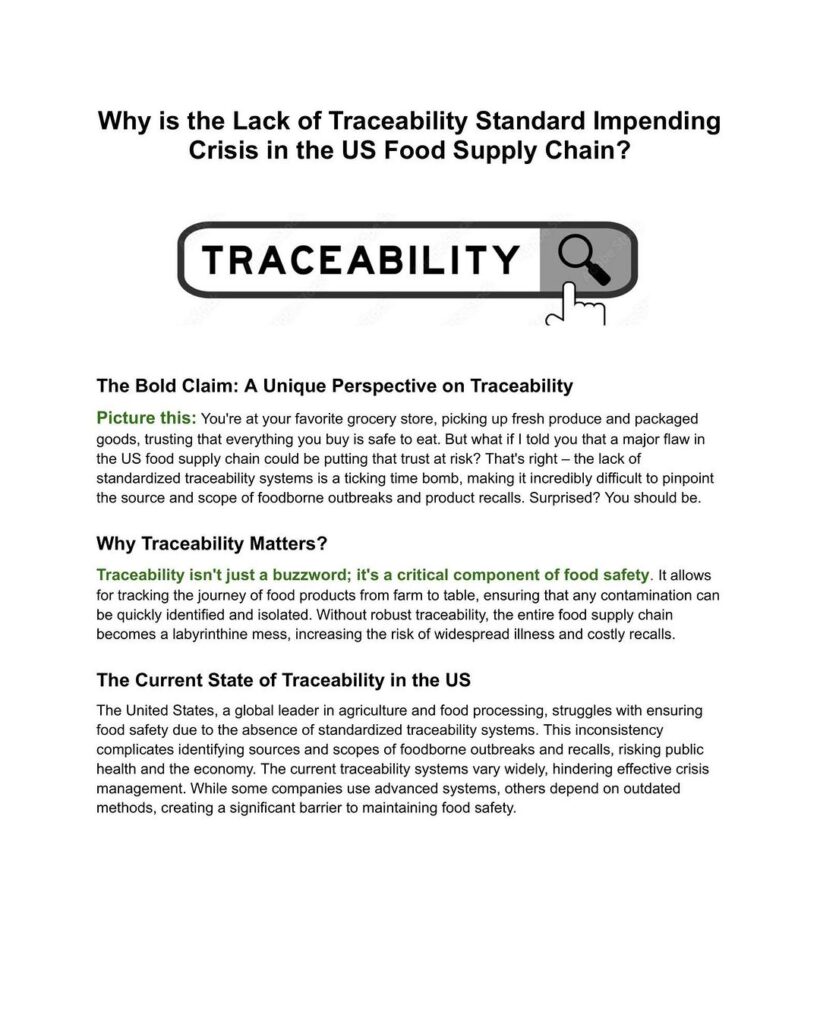
very informative articles or reviews at this time.